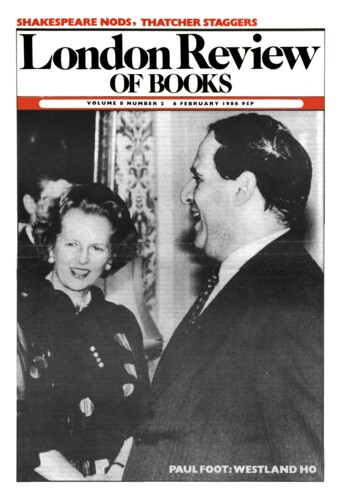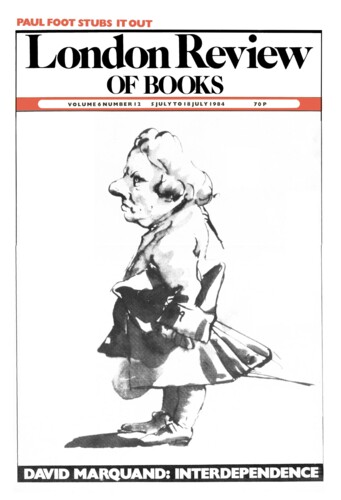Westland Ho
Paul Foot, 6 February 1986
It was the end of a Cabinet meeting and Mrs Thatcher was cross. It was all so silly, so unnecessary. She was half-way through her second term as prime minister – a bad time for most governments, but hers was doing surprisingly well. Earlier in the year, the most dangerous of all the ‘enemies within’, the miners’ union, had been thoroughly beaten in a tough fight. The trade unions everywhere else were humbled and split. The Opposition was fighting itself, and was unconvincing. For a brief moment, almost incredibly, the Conservative Party had established a small lead in the polls.’



